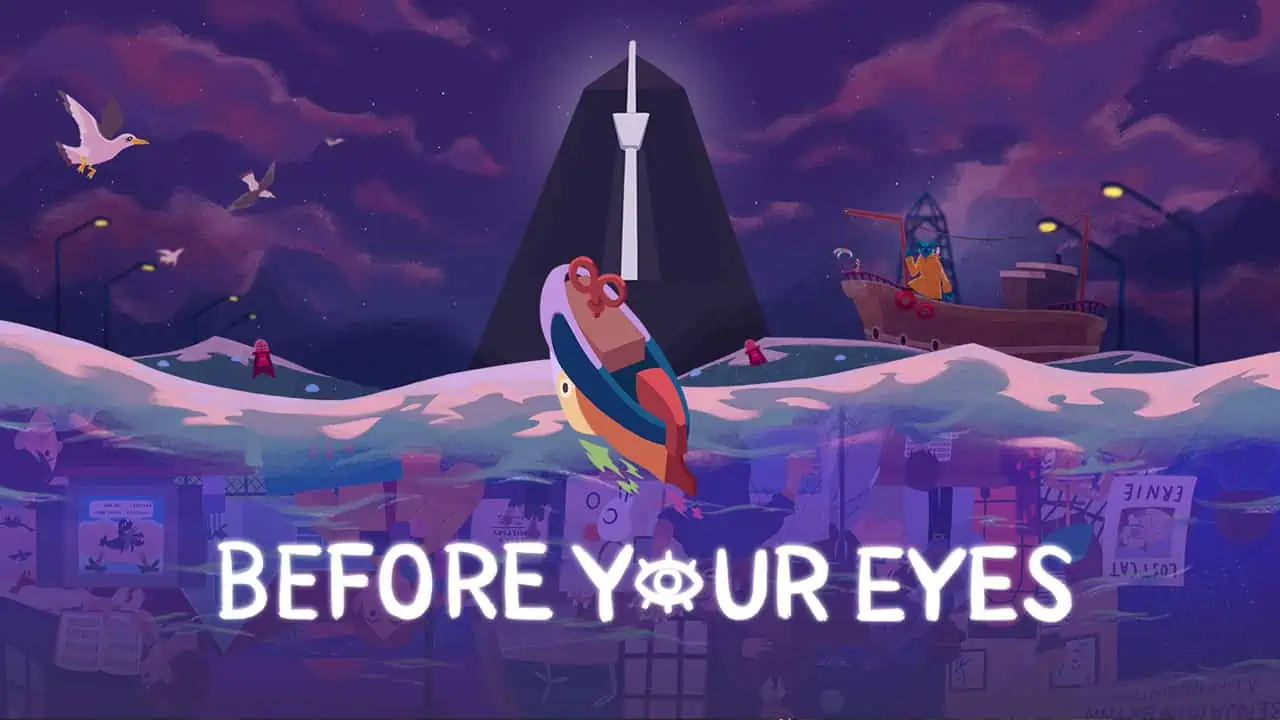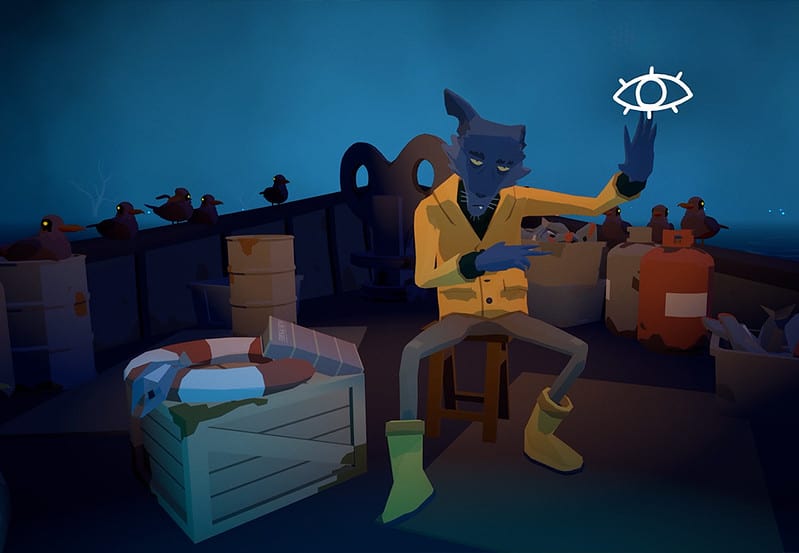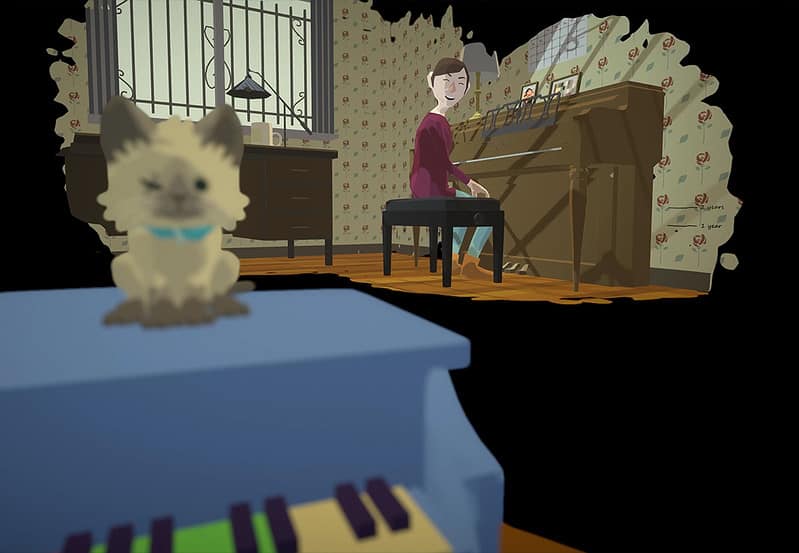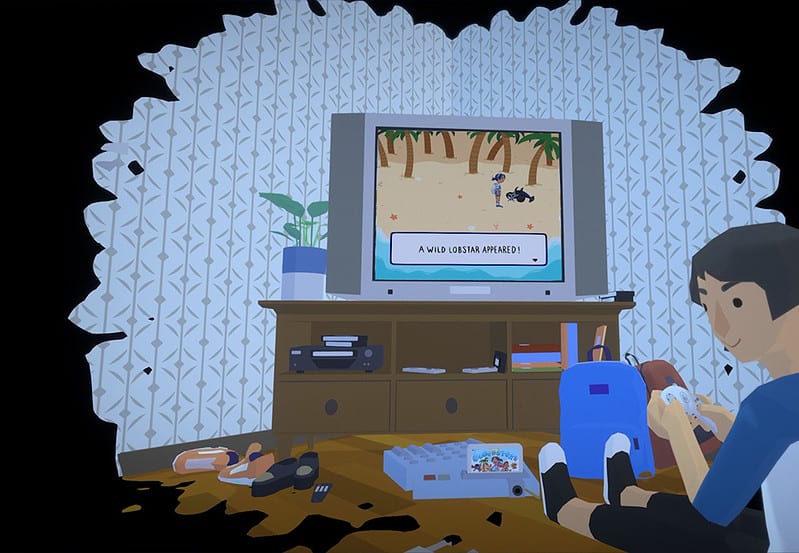Interview: Why Before Your Eyes' blinking works so well
10 min. read
Updated on
Read our disclosure page to find out how can you help MSPoweruser sustain the editorial team Read more

Recently, I had the pleasure of getting my hands on the narrative excellence of Before Your Eyes. As you might already be able to tell, I thoroughly enjoyed my time with the game and was even lucky enough to talk to Will Hellwarth, Oliver Lewin, and Richard Beare from GoodbyeWorld Games to find out just how and why blinking makes Before Your Eyes.
With gorgeously stylised visuals, a truly captivating emotive story, and the unique way you interact with it all, Before Your Eyes is nothing short of a spectacular experience. The game had me utterly spellbound, not wanting to blink to miss even a second of what I couldn’t get enough of, and that was exactly the point of Before Your Eyes.
Needless to say that the connection to the game built through blinking had the story of love and loss hitting all the harder, leaving me full-on weeping as the game drew to a close. “Put another one on the scoreboard Ollie,” triumphed Will Hellwarth, creator and studio director, at my admission of tears as I asked about how well Before Your Eyes blink detection could cope with a sobbing mess.
Tracking blinks on a red-faced tear-streaked mess was undoubtedly a challenge, but one the game still handled admirably due to tracking key points over the face, I was told. The jaw, chin, mouth, nose and, of course, the eyes were all used in conjunction to keep the interactive blinking running smoothly.
Surprisingly, the massive spike in blinking activity that naturally comes from crying was the opposite problem for the team at GoodbyeWorld Games. “That’s the Mount Everest of inadvertent blinks for us. We’re always happy when that happens,” Oliver Lewin, game director and composer, told us, revealing that at the core, you’re never meant to see everything. “I think it feels like a natural kind of part of the gameplay as well.”
From the moments I missed in my time playing Before Your Eyes, I knew that they were absolutely right. When I blinked away some of the story, even when I was trying so hard not to, I wanted to be back in that scene more than anything, but I couldn’t. Just like time, the game had moved on.

“The short answer to that is yes,” Lewin chimed, as I asked if that was the intention, the game is absolutely about the moments you miss. “When Will kind of had the first kernel of an idea for this, it was. It was about missing things.”
“Over the quite long development cycle, we’ve really kind of massaged, where that is just in terms of how much people miss.” But the question remained, how much should you miss? In the original idea for Before Your Eyes, you never knew which blink was going to be your last, so as the game evolved, how ruthless did they want to be with the feeling of blink and you’ll miss it?
“The amount of vindication, I just felt, yeah, I was that guy,” Hellwarth gleefully confessed, “the original builds of this game, where you clicked to interact in every single blink you had it forward, no matter what. I fought for that version for a long time,” but alas, that brutal build didn’t survive the testing process “people were like, it’s cool, but I wish I didn’t just miss the first half of the game.”
[shunno-quote align=”left”]”So we were kind of like, well, that’s the point, but you don’t want to make something frustrating.”[/shunno-quote]
Recounting the tester’s experience, Lewin said, “oh yeah, I love the game. But I was so frustrated because I kept missing things. So we were kind of like, well, that’s the point, but you don’t want to make something frustrating.” So the team had to create a solution. “That was very much the kind of one-to-one with the philosophy of the game and the gameplay” Lewin added explaining just what that original version meant to Before Your Eyes.
To keep the game flowing as it should, GoodbyeWorld Games introduced a metronome that ticks back and forth along the bottom of the screen “giving players a little bit more control and a bit of a sense so that it’s not just life totally flying by.”

“That metronome is the dividing line or any kind of content for interactions. After it, you know, you have to understand that the player is not necessarily going to experience them and if they do experience them, they’re maybe going to feel a little bit more, lucky or proud of themselves for experiencing them.” Lewin elaborated, encapsulating the feeling of why beating your urge to blink to see more of the story feels so good.
To make even the most resilient iron-willed blinkers miss out on something, GoodbyeWorld Games had a few tricks up their sleeves beyond making you weep uncontrollably. “There’s a lot of stuff in there that I wonder if anyone is going to hear it,” noted Lewin about just how much extra dialogue they recorded and put in the game as a treat after the metronome dictates the end of a scene.
Graham Parkes, the writer and creative director behind Before Your Eyes made sure of that, as Lewin continued to say, “He would get the actors to kind of ad-lib because especially Sarah Burns and Eric Edelstein they have a relationship that predates this game and they really like to improv and ad-lib together.”
“We sometimes would forget, going into the duration of a scene, that we had crossed the threshold into the point where, oh, wait. Yeah. Only 1% of the players are going to hear this.“ He went on, confessing just how much extra there was to hear, as they themselves got caught up listening.
As you blink and leave a scene, intentionally or not, you’re left never knowing how much left was to play out, even after the metronome starts ticking away. With this, each blink is made to feel all the more powerful, that you’re always going to miss something no matter how hard you try to keep your eyes open to get to that 1% of extra dialogue and stay in the scene.

Not only is it exceptionally compelling as a gameplay experience, one that you quite literally can’t look away from, but it’s also an exceptional feat from GoodbyeWorld Games, being a joy to play such a cohesive game that melds together into an outstanding tapestry of an experience.
While blinking has always been at the heart of the experience, I was quick to learn that it was one of few features to make it from the initial idea to release. Even the name didn’t come about until the late stages of development: “So originally, Will named it Close Your, and I think that the next name was Coda. And that change just sort of represented how we really recreated the story from the ground up.”
“We completely changed the scope, Close Your was a very short game that did very well at festivals and it really had its own life.” After receiving funding through Kickstarter and bringing on a bigger team, it was clear that the “scope had grown so much, Graham wrote a completely new story. So that’s when we renamed it Coda.”
Before they could release, however, Coda premiered at Sundance Film Festival which left the team with a tough decision on their own name. Ultimately, “we just didn’t really want to be the second Coda in 2021.” Lewin explained.
Changing the name another time wasn’t all bad news, however, “It was kind of a blessing in disguise as I think Before Your Eyes kind of has that literal connection to your eyes, and that’s something we’re really happy about getting into our title. So what do they say? Third times the charm?”

“Our process has been kind of like reminiscent of FEZ, if you remember where we’ve probably made like three or four almost finished versions of this game before this version that’s coming out” elaborated Hellwarth who went on to explain their hopes to release those prototype versions on Kickstarter for their dedicated backers who’ve supported through all the changes.
Tracking back through all the changes, it started by Hellwarth asking “Oh, what’s the coolest thing you could do with a blink” to himself. “It’d be super cool if like, you didn’t know which blink would be like your last blink. So like you’re sitting in a hospital and you’re blinking and like, boom, like all of a sudden you’re dead.” And boom, the idea for Before Your Eyes was born.
Even as blinking remained at the core, you can play Before Your Eyes without it, just by using your mouse instead. “It’s a very different experience. In that one sense that you do have more control about how much you see in any given scene, but it’s a version of the game that I still very much enjoy playing.” Lewin told us in defence of the click only mode.
While a webcam is encouraged, it’s still totally viable to play Before Your Eyes by clicking instead, though you do miss out on some of the inescapable risk that comes from blinking. “The game is designed around that tension, but we also recognize that it’s still very playable and you can still get a lot of the experience just in the click mode. You get a chance to experience the story.”
Ultimately, it’s a change between a stellar experience and a stellar story “I think a lot of people will really talking a lot about the story, and a lot of people will also be talking about their experience” Richard Beare, lead engineer and developer, told us, as no matter how you play Before Your Eyes, it’s a game well worth talking about.
A huge thank you to Will Hellwarth, Oliver Lewin, and Richard Beare for their time in having this chat, it was an absolute pleasure.
Before Your Eyes is available on Steam and the Epic Games Store and is well worth your time.









User forum
0 messages